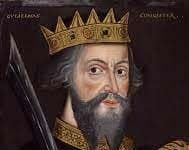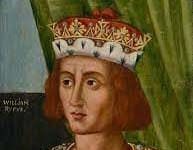Albert Camus | Brief Biography
Albert Camus | Brief Biography
Albert Camus was a French author, journalist, and philosopher who was born on November 7, 1913, in Mondovi, Algeria. He was the second child of Lucien Auguste Camus and Catherine Helene Sintes. His father was killed in the Battle of the Marne during World War I, when Albert was just one year old. This loss had a profound impact on him and would later shape his views on life and death.
Camus was raised in poverty by his mother, who worked as a cleaning woman. Despite the hardships, he was a brilliant student and excelled in his studies. He received a scholarship to the University of Algiers, where he studied philosophy and began to write. He was especially influenced by the works of Friedrich Nietzsche, who emphasized the importance of individual freedom and the rejection of conventional values.
In 1936, Camus joined the French Communist Party, but he quickly became disillusioned with the party’s stance on artistic freedom. He left the party in 1937 and began to focus on his writing. He published his first novel, “The Stranger,” in 1942, which became a literary sensation and established him as one of the leading writers of his generation. The novel, which tells the story of a detached and emotionally numb man who kills an Arab on the beach for no apparent reason, was seen as a commentary on the absurdity of human existence.
In the same year, Camus published “The Myth of Sisyphus,” which further explored the theme of absurdity. In the essay, he argued that the human condition is one of futility and meaninglessness, but that individuals could find meaning in their own lives through the pursuit of happiness and personal freedom. This idea would later become central to his philosophy of the “Absurd.”
During World War II, Camus became involved in the French Resistance and worked as a journalist for the underground newspaper “Combat.” He was also active in promoting human rights and advocating for the rights of Algerian independence. After the war, he became a leading voice in the intellectual world, and his works were widely read and discussed.
In 1957, Camus was awarded the Nobel Prize in Literature for his “clear-sighted earnestness” and his ability to address “the great questions of existence.” However, he was also criticized by some for his political views, which were seen as too conservative by some and too liberal by others. Despite this criticism, he remained a respected figure and continued to write and speak out on issues of social justice and human rights.
Albert Camus died on January 4, 1960, in a car accident near Sens, France. He was just 46 years old. Despite his early death, he left a lasting legacy and remains one of the most important figures of 20th-century literature and philosophy. 0 0 0.
Sources:
“Albert Camus: A Life” by Olivier Todd
“The Stranger” by Albert Camus
“The Myth of Sisyphus” by Albert Camus
“Albert Camus and the Philosophy of the Absurd” by William Lewis
“Albert Camus: A Critical Introduction” by Adriana Cavarero
The Nobel Prize in Literature 1957, NobelPrize.org
“Camus: A Critical Examination” by Edward F. Szczepaniak. ***
N.B. The article originally belongs to the book entitled ‘Biographies of Writers Around the World‘ by Menonim Menonimus.
Books of Biography by M. Menonimus:
- The World Writers-Brief Biographies
- Introduction to World Writers
- Introduction to World Personalities
- Love of Reputed Persons
- Brief Biographies of Prominent Bengali Writers
- Brief Biographies of Eminent Monarchs
- Brief Biographies of Ancient Thinkers and Writers
- Brief Biographies of Eminent Generals and Conquerors
- Biographies of Writers Around the World ..
Books of Literary Criticism by M. Menonimus:
- World Short Story Criticism
- World Poetry Criticism
- World Drama Criticism
- World Novel Criticism
- World Essay Criticism
- Indian English Poetry Criticism
- Indian English Poets and Poetry Chief Features
- Emily Dickinson’s Poetry-A Thematic Study
- Walt Whitman’s Poetry-A Thematic Study
- Critical Essays on English Poetry
- Tawfiq al-Hakim’s Novel: Return of the Spirit-An Analytical Study
- Tawfiq al-Hakim’s Novel: ‘Yawmiyyat Naib Fil Arayaf’-An Analytical Study
- Analytical Studies of Some Arabic Short Stories
- A Brief History of Arabic Literature: Pre-Islamic Period (500 AD-622 AD)
- A Brief History of Arabic Literature: Early Islamic Period (622 AD-661 AD)
- Reviews on William Shakespeare’s Works
- Reviews of Charles Dickens’ Works
- Reviews of John Milton’s Literary Works
- Reviews of Some Iconic Travelogues …
Additional Searches:
- Famous Writers
- The Lives of the Poets
- 10 Best Generals of All Time
- Muslim Leaders in History
- Best Military Commanders of All Time …











